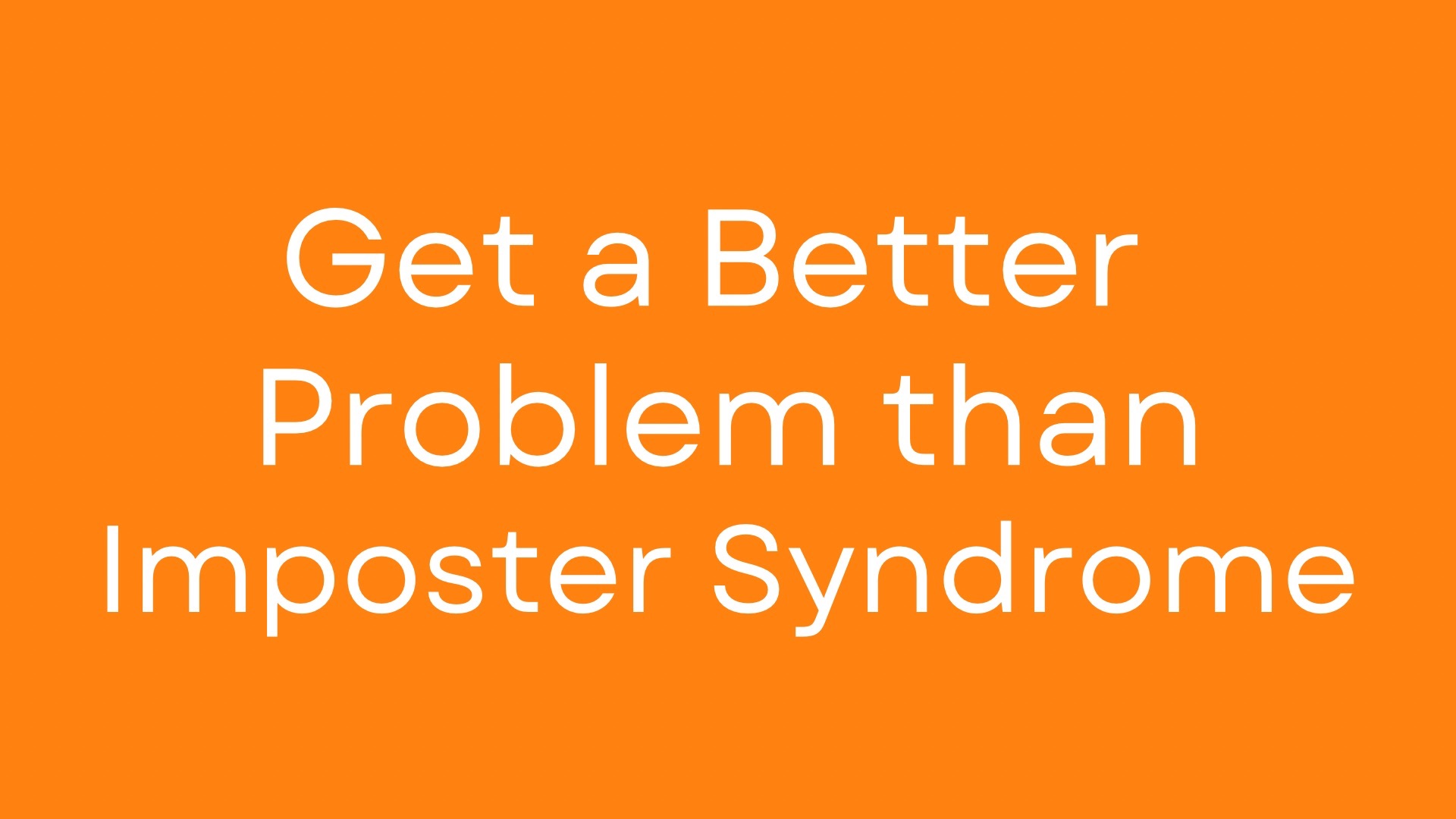
Ever feel like everyone else has it figured out —and you’re just faking it?
You’ve got the degree, the experience, the receipts—and yet there’s a voice in your head whispering, “You’re a fraud.”
That’s what they call imposter syndrome. But I don’t.
Imposter Syndrome vs. Imposter Phenomenon
The definition of imposter syndrome is doubting your abilities, feeling like a fraud, and the fear of being found out.
When imposter syndrome was first studied in the late 1970s, it wasn’t called a syndrome—it was described as imposter phenomenon.
I don’t like the phrase imposter syndrome, I don't use it, and I don’t believe in it.
Yes, the feelings are real. We all know those moments when we question whether we belong, when we doubt our abilities, when we silently ask ourselves, "Who am I to be doing this?"
But when we label it a syndrome, we make it sound medical, fixed, and chronic. Like there’s something wrong with us.
Why not call it what it really is? Self-doubt.
Why use the word imposter and hand over so much of our power? I don’t feel energized when I call myself an imposter. How about you?
This Isn’t Just a “Women’s Issue”
Here’s something many people don’t realize:
The only people studied in the original research were women—so of course it got framed as a women’s issue. But since then, research has shown that these thoughts are prevalent across all genders.
And if you’ve ever felt like you had to work twice as hard to be taken seriously, you’re not imagining it. You’ve been swimming upstream.
Let’s Call It What It Is—and Change the Narrative
If we look at this as a phenomenon—meaning thoughts of self-doubt that come and go—andacknowledge that these thoughts are shaped by systemic issues like racism, classism, gender inequity, and xenophobia (all of which were absent from the original studies), we realize two things:
-
There’s a level of self-accountability we all carry to manage our thoughts, feelings, and behaviors. If your self-doubt feels persistent, I promise—with the support of a skilled coach, therapist, or mentor—it can shift. It’s not fixed. It’s not forever. And a healthy dose of self-doubt? It’s often a sign you’re doing something right, not something wrong.
-
We need to focus on fixing the systems that are broken—not perpetuating the idea that women are broken. This was never only a women’s issue. Let’s put down the bag we’ve been carrying for decades. Stop wasting your precious energy on fixing what isn’t broken—and, quite frankly, get yourself a better problem than imposter syndrome.
Feeling This? Let’s Talk.
If this resonates and you’re tired of second-guessing yourself or shrinking to fit into spaces you’ve already earned a seat in, let’s talk. I offer a complimentary 1:1 Full of Herself coaching session to help you reconnect with your power and move forward with clarity. Schedule yours here.
And if you’re in the Columbus area, join me on April 17th for Fireside Conversations—a deeply immersive experience where you can drop the weight of expectations, step into deep conversation, and leave with a renewed sense of clarity, confidence, and connection—both to yourself and the women around you. 6 tickets left!
You don’t need to fix yourself. You need to free yourself.
And this is the work that sets you free.
With Love,
Sarah x


